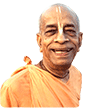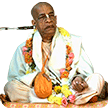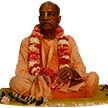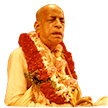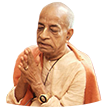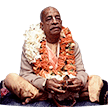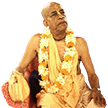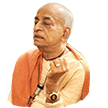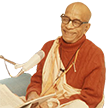Sannyasa - an essential subject: Difference between revisions
(Created page with "Category:Essential Subjects <!----------------------- edit below this line -----------------------> <!------------------------ begin introduction text below --------------...") |
(Vanibot #0041: Moves Choose Another box to the end) |
||
| Line 2: | Line 2: | ||
<!----------------------- edit below this line -----------------------> | <!----------------------- edit below this line -----------------------> | ||
<!------------------------ begin introduction text below ------------------------> | <!------------------------ begin introduction text below ------------------------> | ||
Real sannyāsa, means no more material desires. It is the beginning of spiritual life. Etāṁ sa āsthāya parātma-niṣṭhā. Parātmā, Bhagavān. To completely devote one's life for service of the Lord. There are four āśramas: brahmacārī, gṛhastha, vānaprastha, and sannyāsa. So sannyāsa means everything sacrificed for Kṛṣṇa's sake. Anāśrita-karma-phalaṁ kāryaṁ karoti yaḥ, sa sannyāsī. A Sanyasa is working without any aspiration for resultant action. | |||
Srila Prabhupada's books, lectures, conversations and letters offer a comprehensive presentation of this essential subject as seen in the Vaniquotes '''[[Vaniquotes:Category: | Srila Prabhupada's books, lectures, conversations and letters offer a comprehensive presentation of this essential subject as seen in the Vaniquotes '''[[Vaniquotes:Category:Sannyasa|Sannyasa]]''' category. An introduction from his books is given below in the following 10 quotes. | ||
<!-------- end introduction text and don't touch next three lines ---------> | <!-------- end introduction text and don't touch next three lines ---------> | ||
---- | ---- | ||
== Quotes from Srila Prabhupada's books == | == Quotes from Srila Prabhupada's books == | ||
<!----------------- edit quote boxes below this line -----------------> | <!----------------- edit quote boxes below this line -----------------> | ||
{{VaniQuotebox| | {{VaniQuotebox|A brahmacari is supposed to engage in the service of a sannyasi and accept him as his guru| A brahmacārī is supposed to engage in the service of a sannyāsī and accept him as his guru. Māyāvādī sannyāsīs therefore declare themselves to be not only gurus but jagad-gurus, or the spiritual masters of the entire world, although, of course, they cannot see the entire world. Sometimes they dress gorgeously and travel on the backs of elephants in processions, and thus they are always puffed up, accepting themselves as jagad-gurus. '''(Caitanya-caritāmṛta, Ādi-līlā 7.64)'''}} | ||
{{VaniQuotebox| | {{VaniQuotebox|A brahmacari, or one who has not accepted the grhastha-asrama (family life), must rigidly avoid talking with women or about women, for the senses are so powerful that they may agitate even the mind of a sannyasi, a member of the renounced order of life|A brahmacārī, or one who has not accepted the gṛhastha-āśrama (family life), must rigidly avoid talking with women or about women, for the senses are so powerful that they may agitate even the mind of a sannyāsī, a member of the renounced order of life. '''(Śrīmad-Bhāgavatam 7.12.7)'''}} | ||
{{VaniQuotebox| | {{VaniQuotebox|A householder is ordered to go to the forest as vanaprastha to acquire complete knowledge and then to take sannyasa prior to his inevitable death|The system of varṇāśrama-dharma prepares a man for going back to Godhead, and thus a householder is ordered to go to the forest as vānaprastha to acquire complete knowledge and then to take sannyāsa prior to his inevitable death. Parīkṣit Mahārāja was fortunate to get a seven-day notice to meet his inevitable death. '''(Śrīmad-Bhāgavatam 1.19.4)'''}} | ||
{{VaniQuotebox| | {{VaniQuotebox|A sannyasi is considered to be a dead man civilly, and therefore the wife becomes a civil widow without connection with her former husband| In the sannyāsa stage no wife can stay with her former husband. A sannyāsī is considered to be a dead man civilly, and therefore the wife becomes a civil widow without connection with her former husband. Mahārāja Dhṛtarāṣṭra did not deny his faithful wife, and she followed her husband at her own risk. '''(Śrīmad-Bhāgavatam 1.13.30)'''}} | ||
{{VaniQuotebox| | {{VaniQuotebox|A person may be a brahmana, a sannyasi, a sudra or whatever, but if he is well conversant in the science of Krsna, he can become a guru|"A person may be a brāhmaṇa, a sannyāsī, a śūdra or whatever, but if he is well conversant in the science of Kṛṣṇa, he can become a guru." (CC Madhya 8.128) This statement is supported by Śrī Mādhavendra Purī. According to the pañcarātra injunction, only a householder brāhmaṇa can initiate. Others cannot. When a person is initiated, it is assumed that he has become a brāhmaṇa; without being initiated by a proper brāhmaṇa, one cannot be converted into a brāhmaṇa. '''(Caitanya-caritāmṛta, Madhya-līlā 4.111)'''}} | ||
{{VaniQuotebox| | {{VaniQuotebox|A sannyasi is one who has clearly understood, through advancement in knowledge, that Brahman - he, the person himself - is the soul, not the body|A sannyāsī is one who has clearly understood, through advancement in knowledge, that Brahman—he, the person himself—is the soul, not the body. One who has this understanding may take sannyāsa, for he is situated in the "ahaṁ brahmāsmi" position. Brahma-bhūtaḥ prasannātmā na śocati na kāṅkṣati (BG 18.54). Such a person, who no longer laments or hankers to maintain his body and who can accept all living entities as spirit souls, can then enter the devotional service of the Lord. '''(Śrīmad-Bhāgavatam 7.15.37)'''}} | ||
{{VaniQuotebox| | {{VaniQuotebox|A sannyasi is supposed to be free from the reactions of his past activities, but a person who is in Krsna consciousness automatically attains this perfection without even accepting the so-called order of renunciation| A sannyāsī is supposed to be free from the reactions of his past activities, but a person who is in Kṛṣṇa consciousness automatically attains this perfection without even accepting the so-called order of renunciation. This state of mind is called yogārūḍha, or the perfectional stage of yoga. As confirmed in the Third Chapter, yas tv ātma-ratir eva syāt: one who is satisfied in himself has no fear of any kind of reaction from his activity. '''(Bhagavad-gīta 18.49)'''}} | ||
{{VaniQuotebox| | {{VaniQuotebox|Elevated sannyasis are promoted to Brahma's particular planet, Brahmaloka, which is the highest planet in the material universe and which survives all the heavenly planets in the upper strata of the planetary system|In the material universe not even Brahmā is free from the process of birth, old age, disease and death. Brahmā, however, is directly engaged in the service of the Supreme Lord in the management of this universe—therefore he at once attains liberation. Elevated sannyāsīs are promoted to Brahmā's particular planet, Brahmaloka, which is the highest planet in the material universe and which survives all the heavenly planets in the upper strata of the planetary system, but in due course Brahmā and all the inhabitants of Brahmaloka are subject to death, according to the law of material nature. '''(Bhagavad-gītā 8.17)'''}} | ||
{{VaniQuotebox|One should not accept the sannyasa order whimsically; he must be fully confident that he can restrain his desires for sense gratification|A sannyāsī's title is svāmī or gosvāmī, which means that he completely refrains from sense enjoyment. One should not accept the sannyāsa order whimsically; he must be fully confident that he can restrain his desires for sense gratification. King Purañjana's family life was, of course, very happy. '''(Śrīmad-Bhāgavatam 4.27.7)'''}} | |||
{{VaniQuotebox|One should not think oneself very advanced simply because one has accepted the sannyasa order|Even if one is in the renounced order, he should never give up the regulative principles. He should worship the Deity and give his time and life to the service of Kṛṣṇa. He should also continue following the rules and regulations of austerity and penance. These things cannot be given up. One should not think oneself very advanced simply because one has accepted the sannyāsa order. '''(Śrīmad-Bhāgavatam 5.8.8)'''}} | |||
<!----------------- edit quote boxes above this line -----------------> | <!----------------- edit quote boxes above this line -----------------> | ||
''' | '''Sannyasa - [[Vaniquotes:Category:Sannyasa|explore more within this category]]'''. | ||
{{EsentialSubjectTotal}} | {{EsentialSubjectTotal}} | ||
<div style="float:left;"> | |||
{{EssentialSubjectnav}} | |||
</div> | |||
__NOTOC__ | __NOTOC__ | ||
__NOEDITSECTION__ | __NOEDITSECTION__ | ||
Latest revision as of 17:30, 22 November 2020
Real sannyāsa, means no more material desires. It is the beginning of spiritual life. Etāṁ sa āsthāya parātma-niṣṭhā. Parātmā, Bhagavān. To completely devote one's life for service of the Lord. There are four āśramas: brahmacārī, gṛhastha, vānaprastha, and sannyāsa. So sannyāsa means everything sacrificed for Kṛṣṇa's sake. Anāśrita-karma-phalaṁ kāryaṁ karoti yaḥ, sa sannyāsī. A Sanyasa is working without any aspiration for resultant action.
Srila Prabhupada's books, lectures, conversations and letters offer a comprehensive presentation of this essential subject as seen in the Vaniquotes Sannyasa category. An introduction from his books is given below in the following 10 quotes.
Quotes from Srila Prabhupada's books
Sannyasa - explore more within this category.
Vanipedia has now over 903 introductory articles compiled from Srila Prabhupada's books under the series titled Essential Subjects. All these articles can be seen in the Table of Content on the right side of this article and also here in this Umbrella Category. Browse through them to relish the breadth and depth of Srila Prabhupada's teachings - There is a subject for everyone.
